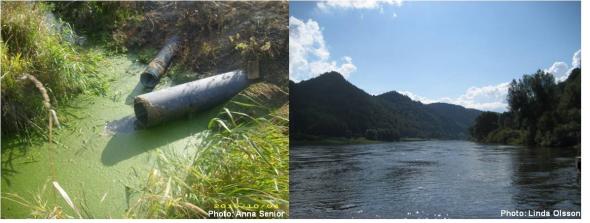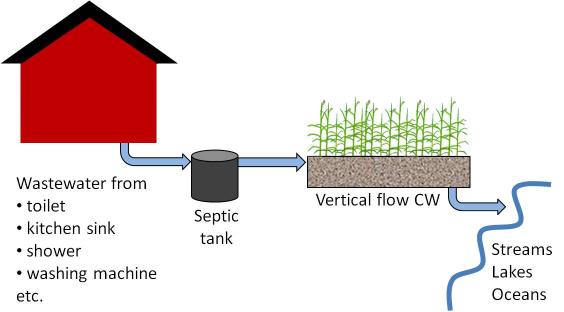Cleaning wastewater using sand, bacteria and plants
How to design the treatment solution of the future?
As the human population grows larger, so does the need of finding more efficient ways of taking care of our waste products. Wastewater contains a lot of pollutants like organic material, nutrients and bacteria, and releasing it into a water body can cause severe problems such as algal blooms and spreading of diseases.

I did my master's thesis project at Helmholtz Centre for Environmental Research (UFZ) in Leipzig, Germany with Dr. Tom Headley as my supervisor. I studied how well pollutants were removed from wastewater in vertical flow constructed wetlands (VF CWs), which can be used for cleaning wastewater "anywhere" - onsite.
Onsite wastewater treatment with constructed wetlands
Cleaning wastewater at the same place as it is generated (onsite) is in many ways the most efficient solution, and in rural areas it is a necessity. Vertical flow constructed wetlands (VF CWs) are gaining attention as good options for cleaning wastewater onsite, since these technologies are low-cost, simple and energy-efficient. Pollutants are removed from the wastewater in a bed of sand or gravel, by the interactions of microorganisms, plants and the bed material itself (read more about this under "How does it work?" in the left menue).

The aim of this study
We wanted to find out how a VF CW should be designed and operated to remove as much pollutants as possible, by answering these questions:
1) Is sand or gravel a better bed material?
2) Do plants improve pollutant removal?
3) Should the wastewater be applied more often in smaller doses or less often in larger doses?
Responsible for this page:
Director of undergraduate studies Biology
Last updated:
05/23/11
